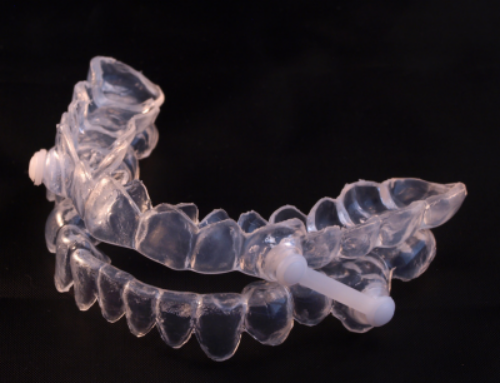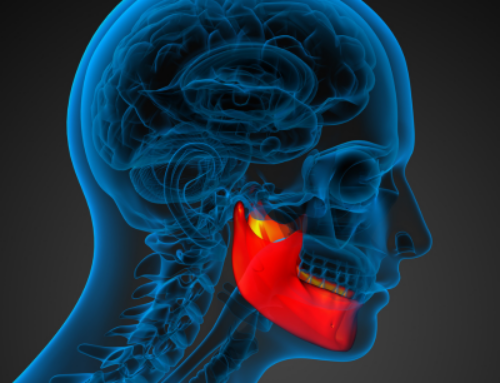 Good sleep is a cornerstone of health, particularly for children and teens who are still growing and developing. Ensuring that young people get the healthy sleep they need can help them perform better in school, manage their emotions and enjoy better physical health overall. At Virginia Sleep & TMJ Therapy, we’re dedicated to helping families in Richmond, East Highland Park, Lakeside and Mechanicsville, VA establish healthy sleep habits and addressing any issues, such as TMJ disorders, that may interfere with a child’s rest.
Good sleep is a cornerstone of health, particularly for children and teens who are still growing and developing. Ensuring that young people get the healthy sleep they need can help them perform better in school, manage their emotions and enjoy better physical health overall. At Virginia Sleep & TMJ Therapy, we’re dedicated to helping families in Richmond, East Highland Park, Lakeside and Mechanicsville, VA establish healthy sleep habits and addressing any issues, such as TMJ disorders, that may interfere with a child’s rest.
Why Sleep Matters for Children and Teens
Sleep is essential for everyone, but it plays an especially critical role in the lives of children and teenagers. During sleep, the body carries out important processes such as growth, tissue repair and memory consolidation. These functions are vital for the physical, cognitive and emotional development of young people.
Sleep Needs by Age Group:
- Children (5-12 years old): Children in this age group need 9-12 hours of sleep per night. Adequate sleep supports their growing bodies, helps them focus in school and boosts their immune systems.
- Teens (13-18 years old): Teens require about 8-10 hours of sleep per night. Despite their busy schedules and social lives, getting enough sleep is crucial for their mental health, academic performance and overall well-being.
Tips for Establishing Healthy Sleep Habits
Parents play a key role in helping their children and teens develop good sleep habits. Here are some strategies that can have a significant impact:
Set Regular Bedtimes
Consistency is crucial when it comes to sleep. Encourage your child or teen to go to bed and wake up at the same time every day, including weekends. This supports their internal clock, making it easier for them to naturally fall asleep and wake up.
Create a Relaxing Pre-Bedtime Routine
A calming routine before bed can help signal to your child’s body that it’s time to sleep. Activities like reading a book, listening to soft music, or taking a warm bath can help them unwind.
Limit Evening Screen Time
Blue light from screens can disrupt melatonin production, the hormone responsible for regulating sleep. Try to minimize your child’s use of phones, tablets and computers at least an hour before bedtime.
Optimize the Sleep Environment
Make your child’s bedroom sleep-friendly by keeping it cool, dark and quiet. A comfortable mattress and cozy bedding can also enhance sleep quality.
Encourage Daytime Physical Activity
Regular physical activity can help children and teens fall asleep more easily at night. Just make sure that they finish any vigorous exercise a few hours before bed so that it doesn’t interfere with their ability to wind down.
Address Stress and Anxiety
Children and teens can experience stress or anxiety that disrupts their sleep. Encourage them to talk about their worries and teach them relaxation techniques, such as deep breathing or mindfulness, that they can use to calm themselves before bed.
Understanding the Impact of TMJ Disorders on Sleep
TMJ (temporomandibular joint) disorders can be a hidden cause of sleep disturbances in children and teens. The TMJ links the jawbone to the skull and facilitates movements like chewing and speaking. When this joint is not functioning properly, it can lead to pain, headaches and even sleep problems.
Signs of TMJ Disorders in Young People
TMJ disorders can be difficult for children and teens to identify on their own. Parents should be on the lookout for signs such as:
- Morning jaw soreness or discomfort
- Clicking or popping noises during jaw movement
- Frequent headaches, particularly upon waking
- Grinding or clenching teeth during sleep
- Difficulty chewing or pain when opening the mouth wide
Should you observe these signs in your child, getting expert advice is essential. Early intervention can prevent TMJ disorders from worsening and disrupting your child’s sleep further.
Treatment Options for TMJ Disorders
At Virginia Sleep & TMJ Therapy, we offer a range of treatments for TMJ disorders, including custom-fitted oral appliances that can alleviate stress on the jaw joint. These appliances are designed to be comfortable for young people and can significantly improve sleep quality by reducing pain and discomfort.
The Long-Term Benefits of Healthy Sleep
Helping your child or teen establish healthy sleep habits will benefit them in many ways, both now and in the future. Good sleep supports academic success, emotional stability, and physical health. By addressing any sleep-related issues, such as TMJ disorders, you can ensure that your child gets the rest they need to thrive.
Healthy Sleep Habits for Children and Teens: Request Your Appointment in Richmond, VA Today
At Virginia Sleep & TMJ Therapy in Richmond, VA, we are here to support your family’s sleep health. If you have concerns about your child’s sleep patterns or suspect a TMJ disorder, don’t hesitate to request an appointment. We’re committed to helping your child achieve restful, restorative sleep, setting them up for a lifetime of good health.




